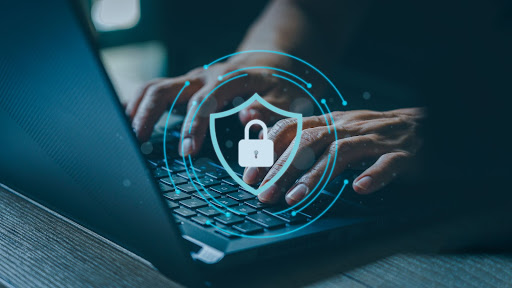As more organizations and businesses embrace the digital landscape, they face a constant threat: cyber attacks.
Cyber attacks can lead to data loss, damage to brand reputation, and significant disruptions to daily operations. While preventing them is necessarily the goal, having a well-defined incident response plan in place is nonetheless critical for effective cybersecurity.
An incident response (IR) plan is a documented set of instructions outlining how a company should respond in the case of a data breach or cyber attack. It enables businesses to detect attacks, contain the damage, and clean up affected systems.
This article explores the importance of IR plans and discusses the benefits they provide in terms of coordinated responses, faster recovery, reduced downtime, and protection of brand reputation.
Organizations can enhance their cybersecurity posture and safeguard sensitive data by understanding and proactively addressing these threats.
What Is An Incident Response Plan?

We’ve touched on what an incident response plan is above, but what does it entail, and why is it essential for effective cybersecurity? Essentially, an IR plan is a written document that aids your organization before, during, and after a cybersecurity incident.
Incident response plans are critical for effective cybersecurity as they protect your organization and clientele. For example, a company that uses a hosted phone service may incur a loss of data, client distrust, and downtime.
An IR plan clarifies the roles and responsibilities required during a crisis and guides critical activities. Without one, organizations might not detect attacks or know how to contain, clean up, and prevent further incidents.
This planning is vital as it outlines steps to reduce the duration and impact of security incidents, identifies stakeholders, and streamlines investigations and digital forensics. It also improves recovery time and mitigates negative publicity and customer churn.
Even minor cybersecurity incidents, such as malware infections, can escalate into more significant problems, including data breaches, data loss, and business disruptions.
What Kind Of Businesses Need A Cybersecurity Incident Response Plan?
Any business that operates in the digital landscape requires a cybersecurity incident response plan. Regardless of your organization’s size and industry, if you work with digital software, there’s a huge emphasis on its importance.
Incidents such as data breaches, malware attacks, phishing attempts, and ransomware can have severe consequences that an IR plan can help businesses mitigate and recover from, minimizing the potential damage.
Specifically, businesses requiring a cybersecurity incident response plan include large corporations, small and medium-sized enterprises (SMEs), financial institutions, healthcare organizations, government agencies, eCommerce businesses, critical infrastructure providers, technology companies, and educational institutions.
In summary, any business that relies on technology handles sensitive data or has an online presence should have a cybersecurity incident response plan. Implementing proactive measures and preparing for potential incidents helps organizations minimize damage, protect their assets, and maintain the trust of their customers.
Why Is Having An IR Plan Critical For Cybersecurity?

Incident response planning is critical for effective cybersecurity because it provides a structured and proactive approach to addressing cyber threats and mitigating their impact. Hiring Ruby on Rails developers who understand and can contribute to your incident response plan will strengthen your cybersecurity and overall business resilience.
Here are some reasons why incident response planning is crucial.
Minimizes Damage and Recovery Time
An incident response plan outlines step-by-step procedures to contain and mitigate the effects of security incidents promptly. According to Microsoft, most organizations plan for 50% of their staff to operate at 50% of standard capacity during cyber incidents.
By having a predefined plan in place, organizations can minimize the duration of an incident, reduce potential damage to systems and data, and expedite the recovery process. This results in less downtime, lower financial costs, and a faster return to normal operations.
Detects and Responds to Attacks
Without an incident response plan, organizations may struggle to detect cyber attacks or know how to respond effectively when they occur.
A well-designed plan includes mechanisms for detecting security incidents, such as intrusion detection systems and security monitoring tools. It also defines roles and responsibilities, ensuring the right personnel are alerted and can take immediate action to mitigate the attack.
Additionally, the plan should incorporate strategies to identify and contain lateral movement within the network, preventing attackers from gaining unauthorized access to sensitive systems and data.
Improves Coordination and Communication
Incident response planning establishes clear lines of communication and coordination among different teams and stakeholders within an organization. It ensures everyone involved in the incident response knows their roles, responsibilities, and escalation procedures.
Effective communication facilitates a coordinated response, enabling faster decision-making, information sharing, and collaboration to mitigate the impact of an incident.
Enhances Forensic Investigation
A robust incident response plan includes procedures for preserving evidence and conducting digital forensics. A plan enables organizations to identify the root causes of security incidents, understand their extent, and gather valuable information for law enforcement or legal purposes.
A comprehensive incident response plan should align with the organization’s Security Incident Response Policy, which provides guidelines and protocols for handling and documenting security incidents in a manner that meets regulatory requirements and ensures compliance.
The forensic investigation also helps prevent future incidents by addressing vulnerabilities and improving security controls. If you’re not sure where to start, here are four tips to investigate cyberattacks.
Reduces Negative Publicity and Customer Churn
Security incidents can significantly impact an organization’s reputation and customer trust. For example, if an IVR solution (IVR stands for interactive voice response) is attacked and personal data is leaked, an organization’s clientele will lose trust in them.
A well-executed incident response plan allows organizations to respond swiftly, communicate transparently with stakeholders, and minimize the negative publicity surrounding an incident. Organizations can maintain customer confidence and reduce churn by demonstrating a proactive and effective response to security breaches.
Allows You to Learn from Incidents
Incident response planning involves a post-incident analysis phase that identifies lessons learned and implements improvements. By analyzing past incidents, organizations can identify vulnerabilities, update security policies and controls, and enhance their overall cybersecurity posture.
This continuous learning process helps organizations avoid evolving cyber threats and adapt their incident response strategies accordingly.
Conclusion
In summary, incident response planning is critical for effective cybersecurity because it enables organizations to respond efficiently to security incidents, minimize damage, and protect sensitive data.
By having a well-defined plan in place, organizations can detect and mitigate attacks, improve coordination and communication, conduct thorough forensic investigations, reduce negative publicity, and learn from past incidents to enhance their overall cybersecurity resilience.
